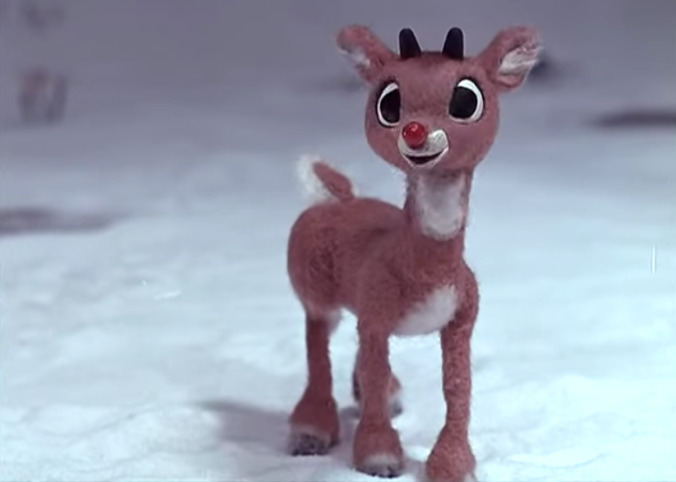We regret to inform you that Rudolph The Red-Nosed Reindeer is now political
One of the inevitabilities of living in a culture that’s actively working to both acknowledge and dismantle the systemic behaviors that have long served to disenfranchise women and minorities is that it’s become really, really easy to point out the ways in which the pop culture of yore is, well, not good. Such critiques are rarely indicative of the quality of the storytelling, but rather the pricklier qualities of the lessons imparted therein and the question of just what the children of today are culling from them. Just as public perceptions of D. W. Griffith’s Birth Of A Nation changed with the rise of public discourse around race, so too shall the sacred cows of yesteryear be reassessed as we deepen and refine our discussions around identity and sexuality.
The narrative of Rudolph The Red-Nosed Reindeer might not be the first piece of art to come to mind here, but, goodness gracious, has it inspired a great deal of debate over the last several years. A new piece in Slate, “‘Rudolph the Red-Nosed Reindeer’ Is Your Latest Problematic Fave,” compiles much of that discussion while also offering up a few takes of its own. While the key takeaway of Rudolph’s story, and the likely intended one, is that being different is not only okay, but good, time and context has led some to ask deeper, more probing questions about its themes. “Do people with differences only deserve respect when those differences benefit their tormentors?” writes author Christina Cauterucci. “And if Santa cares so much about condemning naughty behavior, shouldn’t he have stepped in to put the bullies in their place?”
Others see the story as “an allegory for being gay,” while others, citing that male reindeers lose their antlers before winter while females keep theirs until spring, make the case that the reindeers “may be women whose labor is erased by the [Rankin/Bass] 1964 film.” Others have taken that a step further by positing Rudolph as “a trans icon.”
Some have even likened Rudolph’s tale to the recent Alabama senate race. As Cauterucci points out:
Food blogger Angela Davis recently likened Rudolph to black women voters who reliably turn out Democratic victories across the country, even as prominent liberals and party bigwigs push a swing away from “identity politics” and toward a renewed focus on the “white working class.” That is, the analogy suggests, Santa and the black-nosed reindeer are content to belittle Rudolph’s protests for fair treatment until they need him to save their end-of-year project.
Fox News, of course, somehow made the Rudolph discussion about Obama.
On a 2011 episode of The Five, host Greg Gutfield mocked a professor of special education who said “Rudolph the Red-Nosed Reindeer” promoted bullying. “Like most profs, he pursues his opinion while ignoring facts,” Gutfield said. “We know what smacks you around makes you stronger. … I mean, how has the liberal-loving media helped President Obama? Not well. He has made more missteps than a tap dancer during an earthquake. But his fanbase media shielded him, which is why he got creamed in 2010.”
If all of this overwhelms you, that’s okay. Just know that, when it comes to the iconic 1964 stop-motion Rudolph, there’s at least one thing we can all agree on: Santa’s a giant asshole.
